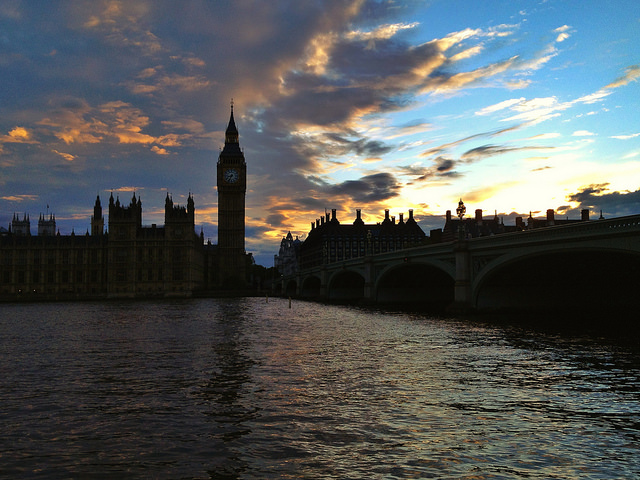The geopolitical implications of the House of Commons’ decision to reject military intervention in Syria
In August 2013, the House of Commons rejected a Government proposal to intervene in the Syrian conflict following that country’s regime’s use of chemical weapons. Here, Dr Kristian Coates Ulrichsen assesses the geopolitical implications of that dramatic night in the House of Commons, arguing that it decisively stopped the momentum towards war.
The dramatic House of Commons vote against military intervention in Syria on 29 August 2013 had ramifications both regionally and internationally. In halting the march toward Western involvement on the side of Syria’s fractured opposition movement, the fallout from the vote generated considerable anger among Britain’s Gulf Arab allies. Coupled with the sudden resumption three months later of the negotiations between the P5+1 and Iran, the autumn 2013 developments in Syria and Iran policy caused a mini-crisis of confidence in British-Gulf relations. Much attention has focused on the agreement reached in September between Russia and the United States on a framework to eliminate the Syrian regime’s chemical weapons. This was an unintended consequence of the London vote and the Obama administration’s own volte-face against military intervention in Syria, although the precise sequence of events that culminated in the US-Russian agreement resulted more from chance than by design.
However, for the Gulf States, perhaps the most significant legacy of the Commons vote was that it stopped in its tracks their attempt to rally the international community in support of the Syrian opposition they had spent a year arming and fragmenting. Eighteen months and the rise of the Islamic State later, it is instructive to recall how close the Cameron government came in August 2013 to a Libya-style intervention in a chaotic and poorly-understood set of overlapping conflicts for local control and resources. Qatar and the United Arab Emirates (UAE) had spearheaded the Libya intervention in 2011, albeit by backing different militia groups, thereby setting the seeds for the proxy conflicts that followed. Two years on, it was Saudi Arabia and Qatar (as well as Turkey) that were most active in channeling material and financial support to Syria, although once again to a wide variety of recipients.
Gulf officials did not take kindly to the halting of the momentum toward intervention that had been reaching a crescendo in the week after the large-scale use of chemical weapons in the Damascus suburb of Ghouta on 21 August 2013. The sudden turnaround in Washington, DC reinforced Gulf rulers’ reservations about the reliability of the Obama administration that stemmed from its perceived abandonment of regional allies during the Arab Spring. The depth of regional anger at what they saw as Western vacillating became evident in October 2013 when Saudi Arabia abruptly rejected the rotating seat on the United Nations Security Council that it had spent two years campaigning to win. Simultaneously, Gulf rulers exhibited a growing willingness to ‘go it alone’ and act unilaterally or, at best, as a loose regional bloc, to secure their interests in the transition states in the Middle East and North Africa.
While the Obama administration bore the brunt of Gulf ire, British officials did not escape without incident, particularly given the UK’s involvement in the Iranian nuclear negotiations in Geneva so soon after the parliamentary vote on Syria. The distrust sowed by both developments in Gulf capitals did damage to the Cameron government’s efforts to revive Britain’s historic military and security ties to the region, which critics labelled overly mercantilist with their heavy focus on trade and investment. In December 2013, the UAE announced it would not make a multi-billion pound purchase of Typhoon fighter jets from BAE Systems despite an energetic lobbying campaign from the British government, which included David Cameron’s personal support for Dubai’s successful bid to host the 2020 World Expo, the granting of visa waiver entry to the UK for UAE nationals, and more than 200 ministerial visits to the Gulf.
Saudi officials also reacted to the geopolitical fallout from the House of Commons vote. In addition to turning angrily on the United Nations, autumn 2013 saw the launch of then-Intelligence Head Prince Bandar bin Sultan’s short-lived attempt to become more directly involved in the anti-Assad movement. This only lasted through February 2014 when Saudi fears of jihadi blowback led King Abdullah to assign responsibility for Syria policy to the Interior Minister (and current Deputy Crown Prince) Mohammed bin Nayef. The shift in Saudi focus from intervention to counter-terrorism was a belated acknowledgment of the newfound threat to regional states from the startling growth of the Islamic State of Iraq and al-Shams (ISIS). By this point, ISIS was surging across large areas of eastern Syria and northwestern Iraq following their breakout from Raqqa and takeover of cities in Iraq’s Anbar province in late-2013 and early-2014, and the international debate on Syrian intervention was turned on its head from the previous summer.
We shall, of course, never know what would have transpired had the House of Commons authorised military intervention in Syria, although developments in post-Gaddafi Libya provide an illustration of how rapidly events can spiral out of the control of even the most benign of interventions. Indeed, the geopolitical shadow of Libya in 2011 hung over Syria just as the domestic political legacy of the Iraq vote in 2003 was evident in the Commons that August night. Both have contributed to the inability of the regional and international community to agree on a political solution to the conflict that has torn apart Syria over the past four years. Thus, the Commons vote resonates precisely because it put a decisive halt to the one instance when there appeared to be genuine momentum toward intervention in Syria, however wise or sustainable such a move may have turned out in practice.
—
This post is part of a series Democratic Audit UK is running on Parliament’s decision to reject military action in Syria, entitled ‘Parliament and Syria: The Vote Heard Around the World‘
Note: This post represents the views of the author, and not those of Democratic Audit or the LSE. Please read our comments policy before posting.
—
 Dr. Kristian Coates Ulrichsen is a Fellow for the Middle East, Rice University’s Baker Institute for Public Policy & Associate Fellow, Chatham House
Dr. Kristian Coates Ulrichsen is a Fellow for the Middle East, Rice University’s Baker Institute for Public Policy & Associate Fellow, Chatham House






 Democratic Audit's core funding is provided by the Joseph Rowntree Charitable Trust. Additional funding is provided by the London School of Economics.
Democratic Audit's core funding is provided by the Joseph Rowntree Charitable Trust. Additional funding is provided by the London School of Economics.
The geopolitical implications of the House of Commons’ decision to reject military intervention in Syria https://t.co/9dX9nWOC2J
In August 2013 the House of Commons’ decision to reject military intervention in Syria changed world history https://t.co/zQn13s7Zve
My article for LSE’s Democratic Audit blog on the geopolitical implications of House of Commons vote on Syria in 2013 https://t.co/9TApDPZdgS
Geopolitical implications of House of Commons’ decision to reject military Syria intervention- illegal w/o UN mandate https://t.co/VO9ztpLgSR
The geopolitical implications of the House of Commons’ decision to reject military intervention in Syria https://t.co/zQn13s7Zve
: The geopolitical implications of the House of Commons’ decision to reject military intervention in Syria https://t.co/OlQOwxilc7”
The geopolitical implications of the House of Commons’ decision to reject military intervention in Syria https://t.co/tCgMlq7VB2